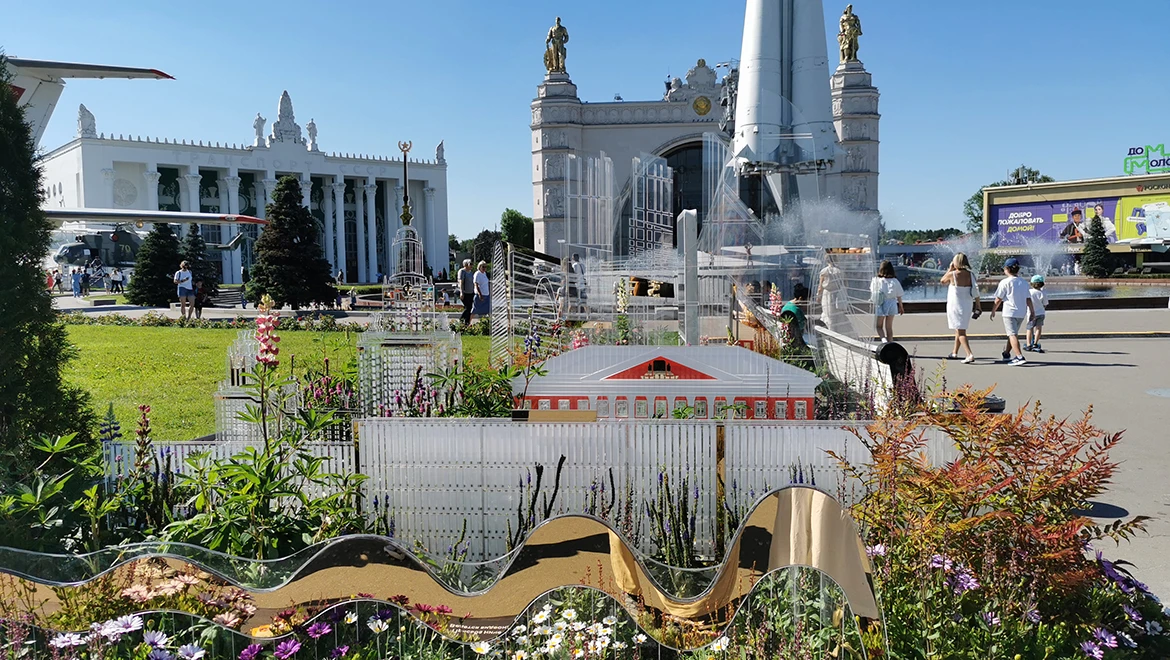Sunflower. Kherson region
The
sunflower belongs to a vast polymorphic genus in the Asteraceae family. The
Latin name of the genus, Helianthus, translates to "sun flower."
A sunflower
is not just a single flower but thousands of tiny ones, called disc florets,
because their centers form perfect spirals. The flowers in the center of a
sunflower grow according to a precise mathematical pattern called the golden
ratio.
The Russian
name (“podsolnukh” that can be roughly translated as “under the sun flower”)
arises from the ability of the flower heads to always turn toward the sun.
Sunflowers have a special sensitivity to sunlight, which allows their heads to
turn throughout the day, following the sun’s path across the sky.
The
sunflower family includes more than 70 species and hundreds of varieties of the
most amazing forms, colors, and sizes. Some varieties have red, burgundy, and
even pink petals. For lovers of the exotic, there are double-flowered varieties
whose fluffy petals resemble lace fringe. Interestingly, breeders have
developed a special variety called "cappuccino" - these are brown
sunflowers that are completely safe for allergy sufferers.
Since ancient times, the sunflower has been considered an emblem of faith and loyalty.
As soon as the flower appeared in Russia, it was used for decoration.
Large yellow buds served as decor in the homes of the nobility. Baskets with
bright inflorescences were often seen at balls and receptions. It is important
to note that the sunflower was brought to Russia from Holland by Peter the
Great. Initially, they were ornamental flowers, but by the end of the XIX
century, our country became an exporter of sunflower oil.
In 1829,
aromatic edible oil was extracted from sunflower seeds. Five years later, the
first oil production plant was launched by serf peasant Daniil Bokarev. Soon,
Russia began exporting the product abroad. This period marks a new chapter in
the history of the sunflower. Vast land areas were allocated for the
cultivation of the crop. The popularity of sunflower oil was boosted by the
Orthodox Church, which included it in the list of foods permitted during
fasting.
Sunflower
seeds are rich in fat-soluble vitamins: A, E, D, and B group vitamins. They are
well absorbed in the intestines, thanks to the fats in the seeds. The seeds are
also rich in minerals: magnesium, calcium, zinc, iron, and fluoride, while
various acids help reduce cholesterol levels. Sunflower seeds have a beneficial
effect on the heart and blood vessels. They are consumed as a preventive
measure against atherosclerosis, heart attacks, and strokes.
The Kherson
region is famous for its vast sunflower fields. The sunflower is a symbol of
prosperity and faith in a bright future for Kherson.
Along with the RUSSIA EXPO, the flower festival is also coming to an end.
The "Future in Flowers" festival continues at the RUSSIA EXPO, where unique flowerbeds from all regions of our country can be seen at the "Space" pavilion until July 8.
The RUSSIA EXPO concludes on July 8, and with it, the flower festival will also come to an end.





